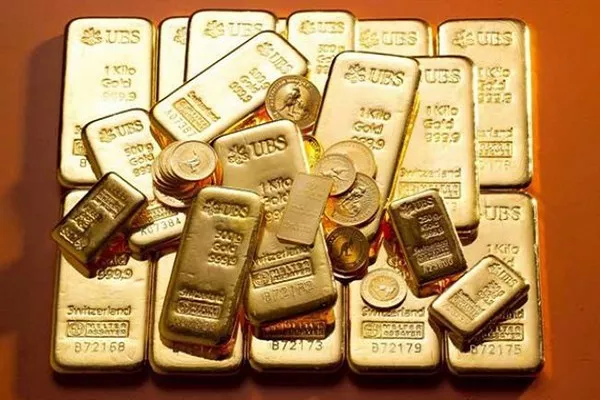In the wake of Israel’s retaliation against a deadly attack by Hamas, global markets experienced significant turbulence, with oil prices soaring and defense stocks rallying while airline shares plummeted. The conflict has raised concerns about the possibility of a broader Middle East crisis.
Over the weekend, Hamas fighters launched a devastating attack on Israeli towns, resulting in the loss of hundreds of lives, the deadliest incursion into Israeli territory since the Yom Kippur War 50 years ago. In response, Israel initiated a military operation in Gaza.
Market Reaction:
Oil prices surged, with Brent crude reaching $87.94 per barrel, marking a 4% increase for the day.
The S&P 500 experienced a 0.1% decline.
Israel’s shekel weakened significantly, with the dollar rising 2.8% to 3.944 shekels. This followed the announcement by the
Bank of Israel that it would sell up to $30 billion of foreign currency.
Israel’s dollar- and euro-denominated bonds faced their most substantial daily price drop in two years.
Safe-haven currencies such as the dollar and Japanese yen saw an uptick, with the dollar index at 106.32, slightly firmer for the day, and the euro losing 0.6% against the yen.
Spot gold rose by approximately 1% to reach $1,850 per ounce.
Safe-haven bonds gained, with U.S. Treasury futures up 0.3%, and Germany’s 10-year Bund yield decreased by 5 basis points to 2.839%, retracting from last week’s highs.
Market Comments:
Paul Nolte, Senior Wealth Advisor and Market Strategist, Murphy & Sylvest Wealth Management, Chicago: Nolte noted the typical market reaction to such events, with investors selling securities and turning to the safety of bonds and the dollar. He suggested that this might be a short-term market reaction and questioned whether it would establish a new trend.
Solita Marcelli, Chief Investment Officer Americas, UBS Global Wealth Management: Marcelli highlighted the potential for the conflict to expand and involve other nations, particularly with implications for oil supplies. She noted that disruptions to Iranian exports could significantly impact oil prices in an already undersupplied market.
Peter Scaffrik, Chief European Macro Strategist, RBC Capital Markets, London: Scaffrik observed a “risk-off” sentiment in the market due to the uncertainty surrounding the conflict’s implications. He suggested that the market might shrug off the situation unless it escalates beyond Israeli borders.
Norbert Rücker, Head Economics and Next Generation Research, Julius Baer, Zurich: Rücker emphasized the boost in safe-haven flows leading to increased oil and gold prices and potentially lower yields. He raised questions about the conflict’s longevity and any potential shifts in the geopolitical landscape.
Filiz Eryilmaz, Chief Economist, ALB Yatirim Brokerage, Istanbul: Eryilmaz anticipated increased demand for precious metals, especially gold, and safe-haven assets. However, she did not expect a significant impact on stock exchanges and markets at this stage.
Bartosz Sawicki, Market Analyst, Conotoxia, Warsaw: Sawicki noted the significant depreciation of the Israeli shekel and the central bank’s intervention to reduce volatility. He highlighted the potential impact on the USD/ILS pair and Israel’s foreign exchange reserves.
Mohit Kumar, Chief Europe Economist, Jefferies, London: Kumar predicted that geopolitical risks would drive the market in the coming days. He suggested that the scale of the conflict could result in ongoing uncertainty until year-end.
Chris Beauchamp, Chief Market Analyst, IG Group: Beauchamp underscored the need to assess the conflict’s ramifications and whether it would involve other states. He acknowledged the spotlight on oil prices and potential supply disruptions.
Carol Kong, Currency Strategist, Commonwealth Bank of Australia, Sydney: Kong observed a strengthening of the USD and JPY and a decline in U.S. equity futures, with a focus on the risk of higher oil prices, equity market declines, and currency volatility.
Michael Hewson, Chief Market Analyst, CMC Markets, London: Hewson noted a move into the U.S. dollar and gold as investors reacted to the conflict, highlighting the uncertainty it introduced to the market.
Alvin Tan, Head of Asia FX Strategy, RBS Capital Markets: Tan pointed out the significant depreciation of the Israeli shekel against the U.S. dollar, driven by central bank intervention and concerns about volatility.
Ipek Ozkardeskaya, Senior Analyst, Swissquote Bank, Geneva: Ozkardeskaya discussed the geopolitical landscape and its impact on oil prices, highlighting potential disruptions to Iranian exports and the role of the U.S. in mitigating oil price shocks.
As the situation in the Middle East continues to evolve, market participants remain cautious, monitoring geopolitical developments and their potential economic consequences.


